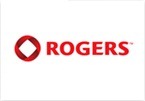Amielle Lake has an interesting take on something she’s calling The Organic Incubator. I’ve talked a lot about startup incubators on StartupNorth. Short of being a promotional piece for local Vancouver development shop Invoke Media is short on real argument. (The article could have easily listed Vancouver-based Nitobi with RobotReplay and PhoneGap; Vancouver-based OpenRoad with ThoughtFarmer or Toronto-based ExtremeLabs; or Portland-based Portland Incubator Experiment; or Edmonton-based nForm with Kiiro).
“The classic approach is to raise capital through government, institutions or private investors and then use that capital to setup infrastructure, such as office space, provide business mentorship, and make smaller investments.”
I’m still not sure what the argument is? An organic incubator that is essentially a consulting shop that has a product development arm. The capital and infrastructure are provided by consulting services rather than a set of limited partners. It sounds like a bootstrapping model where the entrepreneurs perform the financial and human capital along with the diligence on opportunities.
Unfortunately, I can’t find any data that support that the proposed organic incubator model is any more or less successful as the incubator of startups.
My guess is that the professional services side does 3 things:
- Generate revenue
- Incubate human capital and talent
- Identify customer needs
Revenue Tradeoffs
The revenue generation presents a tradeoff between the growth of a successful consulting practice (see Hockey sticks and consultants) and investment in the creation of new ventures. This is a common challenge for early stage software startups, using consulting to get to ramen profitability. There needs to be a focus on being a product company and growth. This can often be lost with an intense consulting business.
Talent Incubation
Incubating human talent is one of the biggest benefits of a consulting practice. It teaches developers the business side and professional side of the equation very quickly. Understanding how companies make purchasing decisions and doing business development are critical skills for many entrepreneurs (go read How JBoss increased their deal size from $10k to $50k). Consulting businesses provide a great training ground for understanding customers and learning the skills necessary for delivery.
Customer Needs
Being in the trenches is a great way to see the problems of real customers. This is not exclusive to consulting practices. But it does provide a lot of designers and developers hands on experience with actual customers and the problems they deal with everyday. It’s a great way to observe, inquire and test the repeatability and salability of early stage products. Depending on your contract in particular the IP ownership from the consulting practice, it might even provide you the start of a code base.
Do your homework!
Understanding the tradeoffs and success factors is the responsibility of a founder. You need to understand the tradeoffs and risks for each decision, all you can do is make informed decisions and learn from your mistakes. Incubators and consulting practices don’t make it any easier and don’t appear to be an indicator of success.



![startupdrinks1[1] startupdrinks1[1]](http://www.startupnorth.ca/wp-content/uploads/startupdrinks11.png)

 Uken Games
Uken Games![startupdrinks[1] startupdrinks[1]](http://www.startupnorth.ca/wp-content/uploads/startupdrinks1.png)